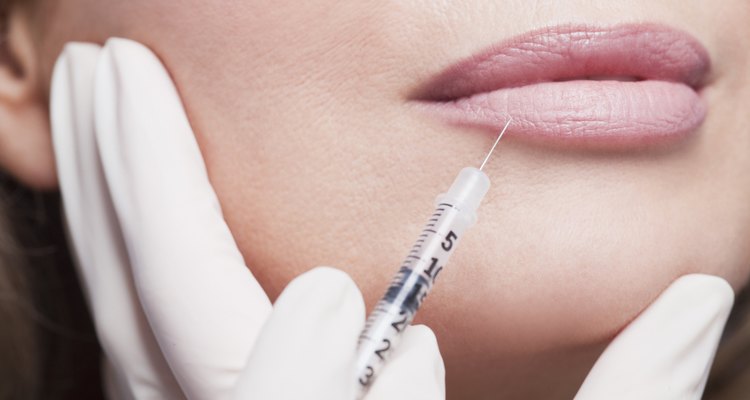
Robert Daly/OJO Images/Getty Images
Botox, also known as botulinum toxin, has a host of uses. It can be used to stop or slow down the formation of wrinkles. It also has therapeutic uses such as muscle pain relief of whiplash, curbing muscle spasms of the elbows, wrists and fingers, which are common occurrences after a stroke, and for excessive sweating in the feet, hands and armpits. For maximum safety, Botox must be administered by a qualified, licensed medical professional, preferably a physician.
After Botox injections, it is possible a patient will experience swelling and/or hematoma, also known as bruising. These are not uncommon and can be treated at home.
Before Botox Injection

Jupiterimages/Stockbyte/Getty Images
Stop taking the following over-the-counter medications and supplements at least one week prior to injection: Vitamin E, NSAIDS such as ibuprofen, fish oil, ginseng, ginko, flax seed oil, garlic and St. John's Wort. Doing so will help reduce incidences of swelling and bruising and can cut down on recovery time.
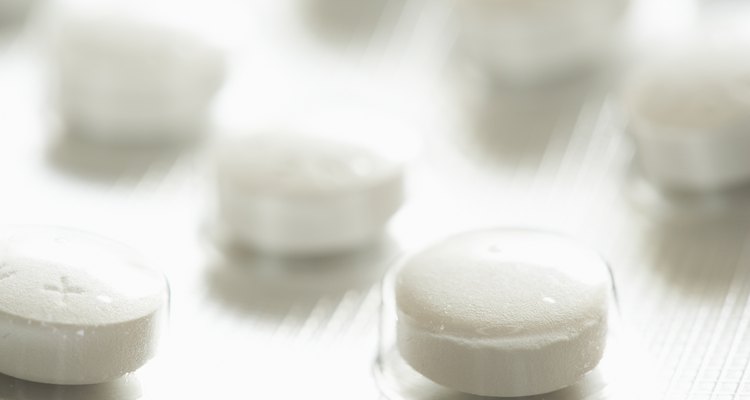
Jupiterimages/Photos.com/Getty Images
Stop taking aspirin 10 to 14 days before the injection, but be sure to get approval from your doctor first as the benefits may outweigh the risks. Aspirin thins the blood and can exacerbate bruising.

Jupiterimages/Polka Dot/Getty Images
Tell your doctor about all prescribed and over-the-counter medications that you are currently taking. Some may have an effect on the amount of bruising and swelling you experince. This is also important for your general safety.
After Botox Injection
Apply a cold compress or pack lightly to the injection site immediately following the procedure.

Jupiterimages/BananaStock/Getty Images
Do not lie down for 4 to 5 hours after the procedure and do not massage the injection site. This can make swelling worse.
Apply firm pressure to any areas of swelling for at least five minutes after you've returned home.
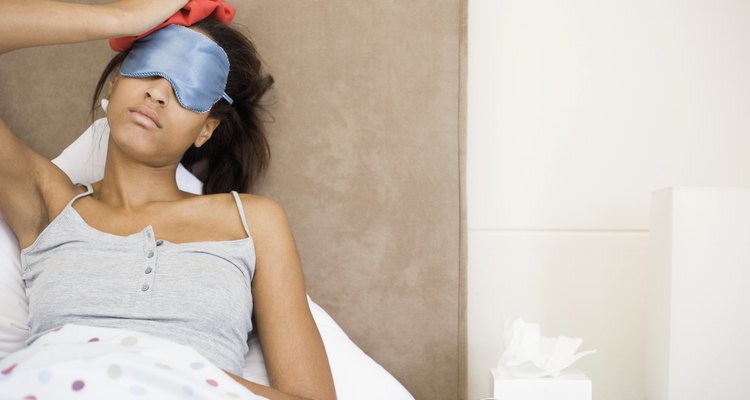
Jupiterimages/Polka Dot/Getty Images
Apply cold compresses or packs to the affected area for the first 24 hours after the injection. Never use hot packs. The cold packs will help reduce swelling.
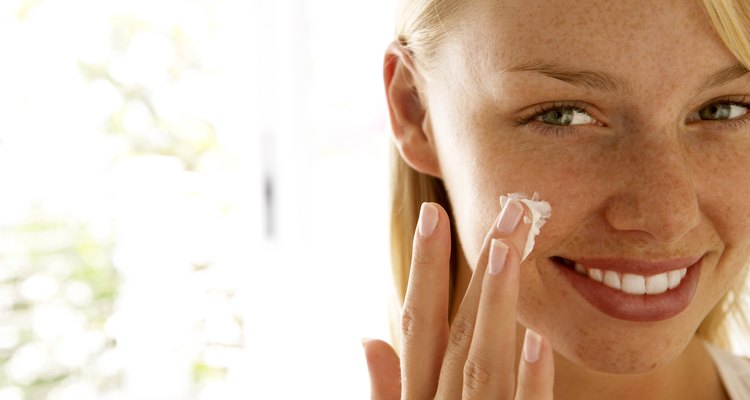
BananaStock/BananaStock/Getty Images
Apply arnica topical cream or tincture to the affected area. Arnica, an herb, has been used since the 16th century to treat bruises and reduce inflammation. Apply as directed.
Take 250 to 500 milligrams of bromelain four times per day. Bromelain is an enzyme in pineapple and aids in minimizing bruising by helping the body digest proteins responsible for swelling and bruising.
Related Articles
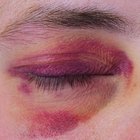
Bromelain & Bruising

Aloe Vera Gel As a Wrinkle Reducer

How to Reduce Acne Inflammation
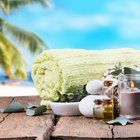
The Benefits of Castor Oil Packs

Snail Cream Benefits

Tazorac Cream & What it Does for Acne

What Are the Benefits of Aloe Vera & ...

What Is Aloe Good For?

How do I Speed Up the Reversal of Face ...

Cleansers for Rosacea That Unclog Pores

How to Maintain Good Skin After Accutane

L-Lysine for Hair Growth

What Are the Benefits of Ashwagandha in ...

Photofacial Vs. Microdermabrasion

Long-Term Health Risks of Laser Hair ...

Aloe Ferox Benefits

Metamucil Dosage for Cats

How to Remove Shaving Scars

Pycnogenol and Acne

Toxicity of Peppermint Oil
References
Photo Credits
Robert Daly/OJO Images/Getty Images